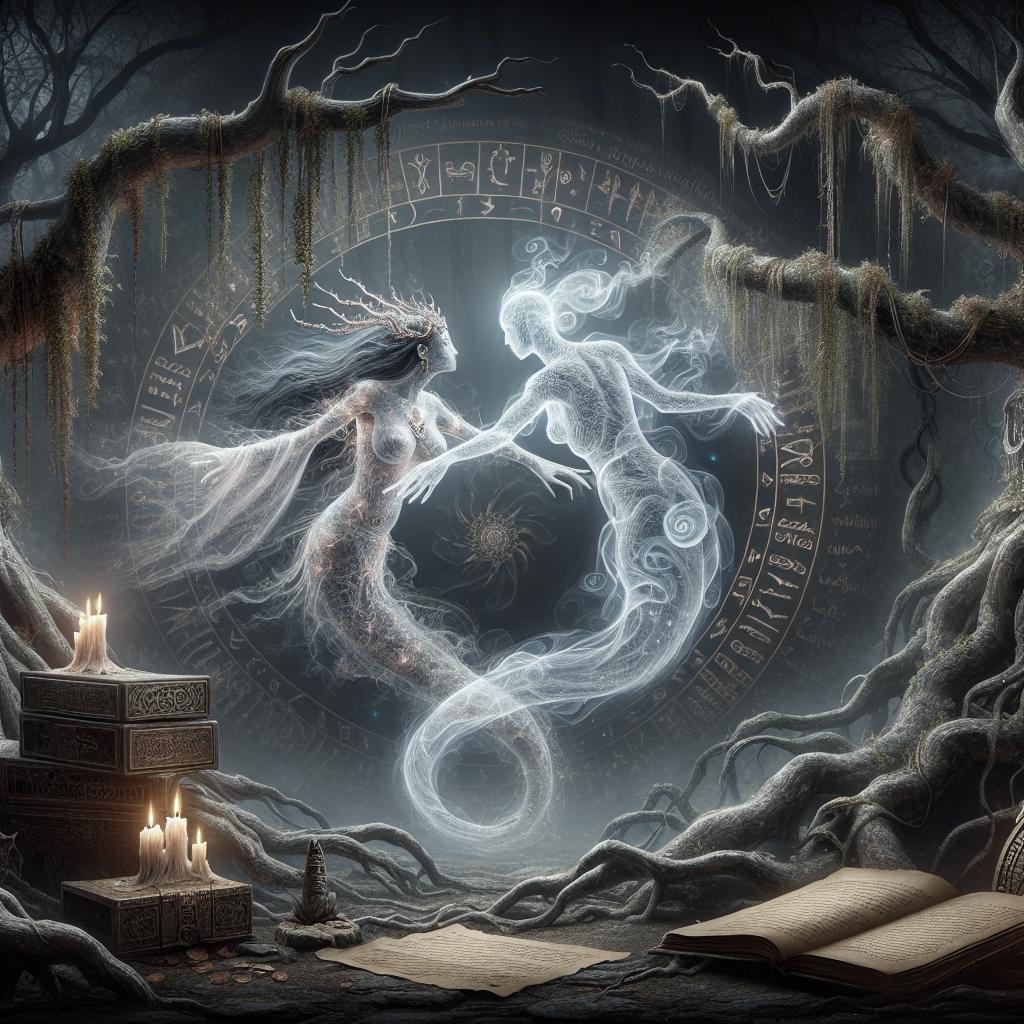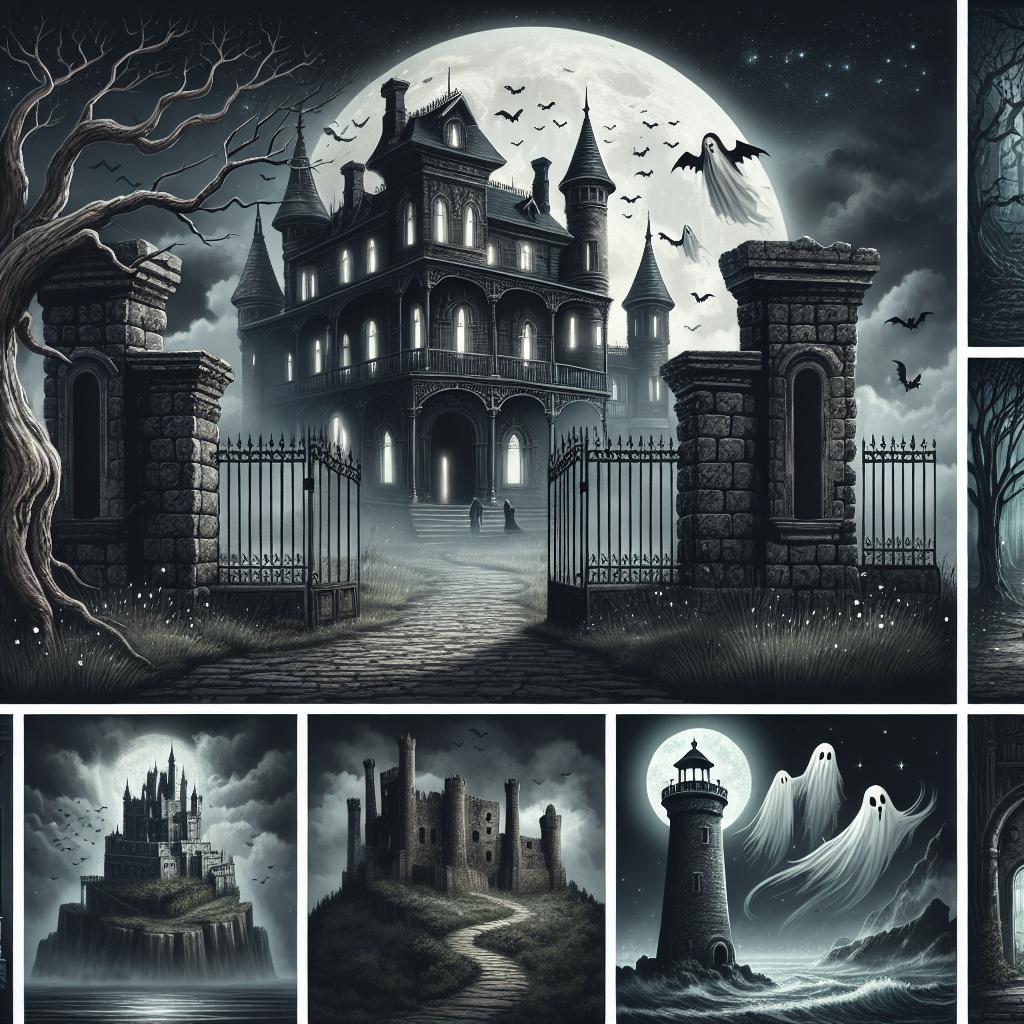“`html
Mythology and Ghosts: An Intricate Dance Through Time
Throughout history, mythology and folklore have intertwined with our understanding of the spiritual realm, bringing forth tales of ghosts and spirits from the beyond. Ghosts are prominent figures not just in today’s popular culture but also in ancient myths around the globe. These specters, often seen as messengers from another plane, have deeply influenced cultural narratives and symbolize a range of meanings, from unresolved emotions to cosmic balance. This blog post explores various perspectives on ghosts, their symbolic significance, and what it means when these apparitions become personal. We delve into the nuanced relationships between mythology and ghosts, providing a fresh glance at their ongoing impact on our lives.
Sign up for the Live Science daily newsletter now
Before we explore the depths of mythical and ghostly connections, you might want to keep up with the latest science and folklore stories by subscribing to our daily newsletter. Bringing you insights from the intriguing world of science and ancient narratives, our newsletter ensures you’re always informed about the eerie corners of our cultural heritage. Join our community of avid readers and stay connected with a click!
What is the real meaning of ghost?
The term ‘ghost’ often conjures images of transparent figures haunting desolate mansions or appearing in horror films. However, the concept finds its roots in diverse cultural and religious philosophies. Ghosts are traditionally defined as the souls or spirits of deceased individuals who have not found peace in the afterlife. This lack of rest could stem from unfinished business, traumatic death, or a vital message left unspoken.
Across various cultures, the representation of ghosts transcends mere spectral visibility. In some traditions, they act as protectors or guides tethered to the world by affection or duty. In others, ghosts are ominous presences reminding people of moral or ethical transgressions. These differing interpretations reflect humanity’s long-standing contemplation of life after death and the moral implications tied to it.
What does ghost symbolize?
The symbolism of ghosts is as varied as the cultures that recount their stories. Commonly, ghosts symbolize unresolved issues, conveying an emotional spectrum of regret, guilt, or nostalgia. This symbolic representation serves as a poignant reminder of humans’ inclination to dwell on the past, underscoring the importance of closure and reconciliation.
Mythologically, ghosts are sometimes considered messengers bridging the gap between the mortal world and the divine or spiritual realm. Their spectral presence can signify a continuum of existence, hinting at life’s cyclical nature and the wisdom of acknowledging unseen forces. Through these symbols, ghosts challenge our understanding of reality, coaxing us to explore what lies beyond the material world.
What does it mean when someone calls you ghost?
In contemporary terms, being called a “ghost” often implies someone who vanishes unexpectedly from social circles or relationships, leaving others in a state of confusion or without explanation. This modern usage reflects the ghost’s traditional symbolism of unresolved mysteries and the void left by the departure of an entity once present and vibrant.
This phenomenon, often termed “ghosting,” is emblematic of the digital age’s detached communication styles. Unlike their mythological counterparts, contemporary ghosts are more about social dynamics than spiritual presences, embodying society’s evolving norms around connectivity and the growing pains associated with these changes.
What does the first ghost symbolize?
The concept of the “first ghost” varies across cultures, but typically, these entities hold significant storytelling power. Often featured in creation myths or moral tales, the first ghost is a crucial figure that delineates the boundaries between life and death, serving as an archetype for later spectral representations.
For instance, in ancient Egyptian mythology, the first ghost may relate to Osiris, the god of the afterlife, teaching lessons about mortality, justice, and renewal. These foundational ghostly figures remind communities of their collective histories and how mortality connects them to their ancestors, guiding societal values and traditions.
Future Prospects
| Aspect | Symbolism/Significance | Modern Interpretation |
|---|---|---|
| Meaning of Ghost | Represents souls of the deceased; unfinished business | Guide or protector; varies by culture |
| Ghost Symbolism | Unresolved issues; emotional spectrum | Messenger between the worlds; cyclical nature of existence |
| Modern “Ghost” Usage | Unexpected vanishing; social disconnect | Reflects changing social dynamics and communication |
| First Ghost Symbol | Mythic figure depicting boundary of life/death | Archetype guiding societal values and heritage |
“`


